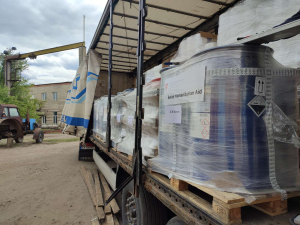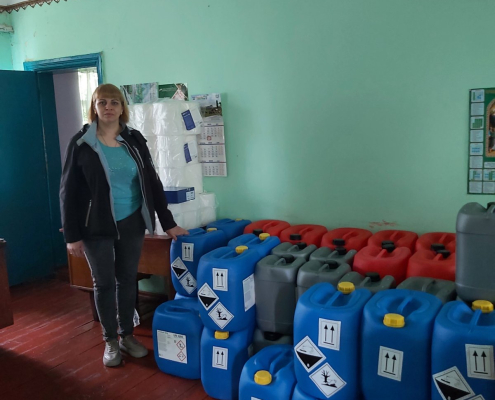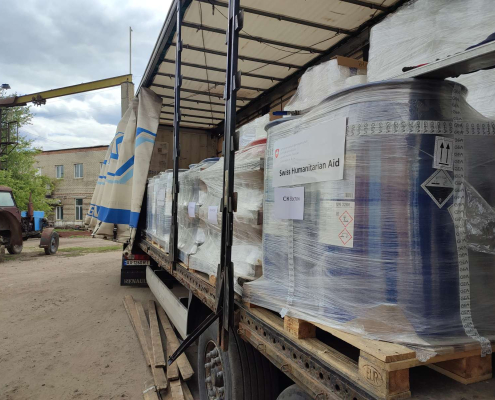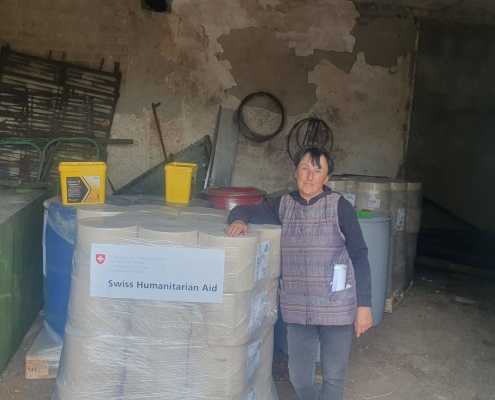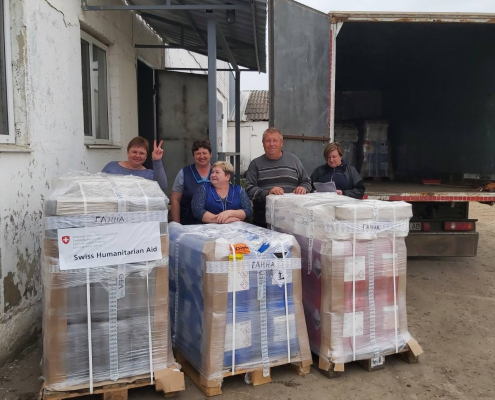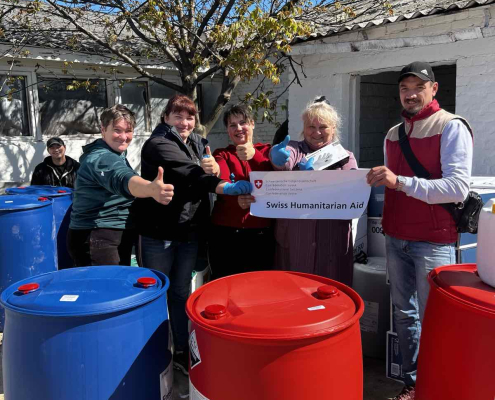Every third dairy farm in Ukraine received humanitarian aid from Switzerland The second phase of the Swiss humanitarian project to provide hygiene products to dairy farms has been completed. From late November 2023 to September 2024, two hundred and two (202) farms in the regions most affected by the hostilities received humanitarian aid. These include the Dnipropetrovsk (32), Donetsk (12), Zaporizhzhia (6), Kyiv (19), Mykolaiv (27), Odesa (29), Sumy (6), Kharkiv (60), Kherson (2), and Chernihiv (9) regions. These farms collectively manage over 126,000 head of cattle, including more than 54,000 cows. A prerequisite for participating in the humanitarian project was state registration of milk production holdingsin accordance with Ukraine’s food legislation. Aid was not extended to applicants whose production facilities were not registered, nor to recipients of humanitarian aid from the first phase of the project. An exception was made for farms in the Kharkiv region, which were allowed to reapply. Importantly, 78 recipients of the second phase are small producers that keep no more than 100 cows, and the milk from these cows is marketed as a food product. The goal of the humanitarian project is to ensure food security by improving access for the population of Ukraine to high-quality and safe milk and dairy products produced in Ukraine. “We are grateful to Switzerland for its consistent support of Ukraine’s dairy sector over the years, which has been realized through technical assistance projects by development partners, and especially for this timely and substantial aid to milk producers in the frontline regions. The humanitarian project, which began in the first months of the war from de-occupied territories, has now covered nearly a third of all farms in Ukraine. Unfortunately, the production of high-quality milk for further industrial processing was concentrated precisely in the regions most affected by the war. Therefore, such humanitarian aid has been a key factor in the recovery and preservation of the production potential of the entire dairy industry,” summarized Taras Vysotskyi, First Deputy Minister of Agrarian Policy and Food of Ukraine. Since the project’s launch in late 2022, a total of 446 dairy farms have received hygiene supplies necessary for proper milk production: detergents and disinfectants for milking equipment, pre- and post-milking udder treatments, udder hygiene wipes, gloves for milkers, reagents for detecting hidden forms of mastitis, disinfectants for livestock facilities, and more, covering a three-month need. The full list of recipient farms is available via the link (in Ukrainian only). “Switzerland allocated 4.8 million Swiss francs under a three-year humanitarian initiative to purchase the necessary hygiene supplies, primarily from local suppliers. This short-term support not only compensated farmers for the lack of access to resources during the most difficult early months of the war, but also ensured proper hygiene standards in primary milk production and preserved its quality for further processing,” remarked Viktor Shutkevych, Assistant Director of Cooperation, Embassy of Switzerland in Ukraine, following monitoring visits to the recipient farms of the humanitarian aid. Note: The humanitarian project is being implemented at the request of the Ministry of Agrarian Policy and Food of Ukraine in cooperation with the Association of Milk Producers, the international charity fund SaveUA, and the State Service of Ukraine on Food Safety and Consumer Protection, with coordination from the Embassy of Switzerland in Ukraine.
